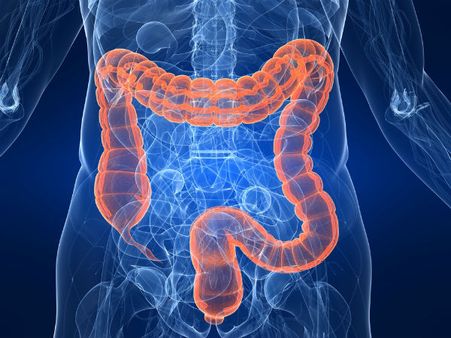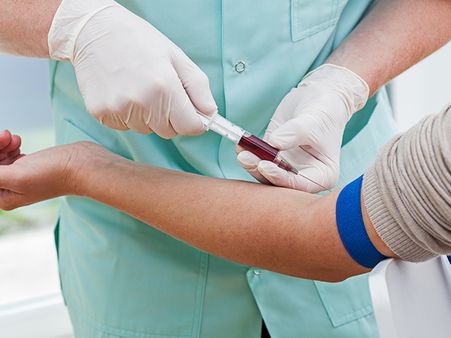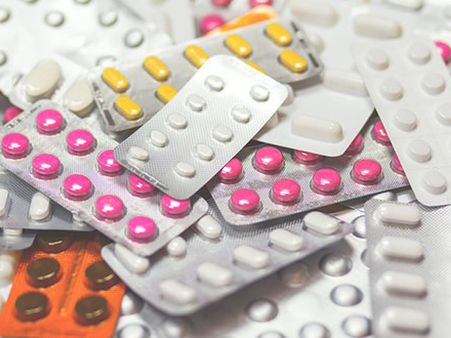Just In
- 5 hrs ago

- 5 hrs ago

- 9 hrs ago

- 15 hrs ago

Don't Miss
- Finance
 FREE, FREE, FREE! 3:1 Bonus: Pharma Stock Hits Back-To-Back Upper Circuits; 500 Shares To Earn Rs 1,69,500
FREE, FREE, FREE! 3:1 Bonus: Pharma Stock Hits Back-To-Back Upper Circuits; 500 Shares To Earn Rs 1,69,500 - Sports
 Manchester City vs Chelsea LIVE Streaming: Where to Watch FA Cup Semi-Final in India, UK, USA and Other Countries
Manchester City vs Chelsea LIVE Streaming: Where to Watch FA Cup Semi-Final in India, UK, USA and Other Countries - Movies
 Pukaar Dil Se Dil Tak Promo: Sayli Salunkhe Impresses In First Video Of Sony TV Show, Details About Her Role
Pukaar Dil Se Dil Tak Promo: Sayli Salunkhe Impresses In First Video Of Sony TV Show, Details About Her Role - News
 Chinese President Xi Jinping Orders Biggest Military Reorganisation Since 2015
Chinese President Xi Jinping Orders Biggest Military Reorganisation Since 2015 - Education
 Exam Pressure Does Not Exist; Studying Punctually is Crucial; Says Aditi, the PSEB 2024 Topper
Exam Pressure Does Not Exist; Studying Punctually is Crucial; Says Aditi, the PSEB 2024 Topper - Automobiles
 Suzuki Swift Hatchback Scores 4 Star Safety Rating At JNCAP – ADAS, New Engine & More
Suzuki Swift Hatchback Scores 4 Star Safety Rating At JNCAP – ADAS, New Engine & More - Technology
 Dell Introduces AI-Powered Laptops and Mobile Workstations for Enterprises in India
Dell Introduces AI-Powered Laptops and Mobile Workstations for Enterprises in India - Travel
 Journey From Delhi To Ooty: Top Transport Options And Attractions
Journey From Delhi To Ooty: Top Transport Options And Attractions
Inflammatory Bowel Disease: Causes, Symptoms, Risk Factors, Diagnosis And Treatment
Inflammatory bowel disease (IBD) is an umbrella term used to describe two conditions: ulcerative colitis and Crohn's disease, which causes chronic inflammation in your digestive tract. Ulcerative colitis only affects the large intestine and Crohn's disease can affect any part of the digestive tract from the mouth to the anus [1].
Inflammatory bowel disease affects more people in North America and Europe than Africa or Asia. Studies have shown that IBD is common among people aged between 15 to 30 years and about 25 per cent of patients develop this condition by adolescence [2].

What Causes Inflammatory Bowel Disease?
The exact cause of IBD is not known; however, genetics and a weakened immune system is said to be the cause of IBD.
- Genetics - If you have a family history of IBD, you are more likely to develop this condition [3].
- Immune system - Normally, the immune system functions by attacking foreign germs such as bacteria and virus to protect the body. In IBD, an abnormal immune response causes your immune system to attack its own cells, causing inflammation in the digestive tract [4].
COVID-19 & Inflammatory Bowel Disease (IBD): What You Need To Know

Types Of Inflammatory Bowel Disease
- Ulcerative colitis - This type of IBD causes long-term inflammation and sores in the large intestine (colon) and the rectum [5].
- Crohn's disease - This type of IBD can cause inflammation in any part of the digestive tract (from the mouth to the anus). However, it mostly affects the tail end of the small intestine [6].

Symptoms Of Inflammatory Bowel Disease
- Abdominal pain
- Diarrhoea [7]
- Weight loss
- Bloody stools
- Fatigue
- Low appetite


Risk Factors Of Inflammatory Bowel Disease
- Age - Most people who develop IBD are diagnosed at around 15 to 30 years of age.
- Gender - Ulcerative colitis is common among men, whereas Crohn's disease is more common among women [8].
- Ethnicity - The risk of IBD is higher among people who are of Jewish descent [9].
- Genetics - If you have a family history of IBD, you are at a higher risk of developing this condition.
- Smoking - Cigarette smoking increases the risk of developing Crohn's disease [10].
- Geographical region - The risk of developing IBD is higher among people who are living in urban areas and industrialised countries.
- Diet - Consuming foods that are high in fat increases the risk of Crohn's disease [11].
- Medications - Taking non-steroidal anti-inflammatory drugs, antibiotics and birth control pills elevates the risk of developing IBD [12].


Complications Of Inflammatory Bowel Disease
- Colon cancer
- Malnutrition
- Ulcers in the digestive tract
- Fistulas
- Anal fissure
- Bowel obstruction
- Rectal bleeding
- Dehydration
- Skin, eye and joint inflammation
When To See A Doctor
If you experience any of the above signs and symptoms or a persistent change in your bowel habits, you must consult a doctor immediately.

Diagnosis Of Inflammatory Bowel Disease
To diagnose IBD, your doctor will first ask you about your family's medical history, ask about the signs and symptoms and your daily bowel habits. Then the doctor will conduct some tests to help confirm the diagnosis. These tests include the following: [13]
- Blood test to check for anaemia or infection.
- Stool samples to check for hidden stool in your blood.
- Imaging procedures like X-ray, MRI and CT scan are done to check the colon and small intestine.
- Colonoscopy test is done to examine the large intestine.
- Endoscopy test is done to examine the stomach, oesophagus and the first part of the small intestine.

Treatment Of Inflammatory Bowel Disease
- Medications [14]
- Anti-diarrheal medications
- Pain relieving medications
- Iron supplements
- Calcium and vitamin D supplements
- Diet
- Surgery
Anti-inflammatory drugs are often the first choice of treatment for IBD, which helps lower the inflammation in the digestive tract.
Immunosuppressant
drugs
are
given
to
reduce
inflammation.
It
works
by
preventing
the
immune
system
from
attacking
the
cells
in
the
digestive
tract.
Antibiotics
are
also
given
to
treat
IBD.
They
work
by
killing
the
bacteria
that
may
aggravate
the
symptoms
of
IBD.
Other medications and supplements that are used to treat IBD are:
Your doctor may recommend a special diet to help treat your IBD. The nutrients will be given through a feeding tube or it will be injected into a vein. This will provide you nutritional support and allow your bowel to rest.
If medications and diet can't lower the symptoms of IBD, your doctor may recommend surgery. A surgery can be done to widen a narrow bowel or remove any fistulas. People with ulcerative colitis may need to undergo surgery to remove the large intestine and rectum. And people with Crohn's disease may need to undergo surgery that removes the affected portions of the intestine.

Prevention Of Inflammatory Bowel Disease
If the cause of IBD is due to genetic factors, it can't be prevented. However, you may be able to lower the risk of developing IBD by implementing these lifestyle changes:
- Consuming healthy, nutritious foods.
- Exercise daily
- Quit smoking and drinking
- Limit the intake of high fat foods
- Drink plenty of water
-
 disorders cureCOVID-19 & Inflammatory Bowel Disease (IBD): What You Need To Know
disorders cureCOVID-19 & Inflammatory Bowel Disease (IBD): What You Need To Know -
 pregnancy parentingWhite Lung Syndrome: What Are The Symptoms Of The Disease Rampant In China? How Does It Spread?
pregnancy parentingWhite Lung Syndrome: What Are The Symptoms Of The Disease Rampant In China? How Does It Spread? -
 healthWorld HIV/AIDS Day: What Is The Difference Between HIV and AIDS?
healthWorld HIV/AIDS Day: What Is The Difference Between HIV and AIDS? -
 healthDengue 101: Causes, Symptoms, Risks, Complications, Treatment, Prevention, Diet And More
healthDengue 101: Causes, Symptoms, Risks, Complications, Treatment, Prevention, Diet And More -
 healthDiarrhoea 101: Causes, Symptoms, Risks, Complications, Treatment, Prevention, Diet And More
healthDiarrhoea 101: Causes, Symptoms, Risks, Complications, Treatment, Prevention, Diet And More -
 health'Epileptic Nightmare' of Neurocysticercosis: The Hidden Epidemic of Parasites Causing Epilepsy
health'Epileptic Nightmare' of Neurocysticercosis: The Hidden Epidemic of Parasites Causing Epilepsy -
 pregnancy parentingLife-Threatening Risk During Pregnancy: Sepsis Can Harm Both Mother and Baby
pregnancy parentingLife-Threatening Risk During Pregnancy: Sepsis Can Harm Both Mother and Baby -
 healthStay Informed: The Hidden Dangers of Legionnaires' Disease and How to Prevent It
healthStay Informed: The Hidden Dangers of Legionnaires' Disease and How to Prevent It -
 healthMyths vs Facts: Can A Single Mosquito Bite Really Give You Dengue?
healthMyths vs Facts: Can A Single Mosquito Bite Really Give You Dengue? -
 healthTop 5 Reasons For Vaginal Rash: When You Should See A Doctor
healthTop 5 Reasons For Vaginal Rash: When You Should See A Doctor -
 healthCan Inhaling Menthol Help Improve Memory For Alzheimer's Disease?
healthCan Inhaling Menthol Help Improve Memory For Alzheimer's Disease? -
 healthWorld Vitiligo Day 2023: Are You At Risk Of Developing Vitiligo?
healthWorld Vitiligo Day 2023: Are You At Risk Of Developing Vitiligo?


 Click it and Unblock the Notifications
Click it and Unblock the Notifications



